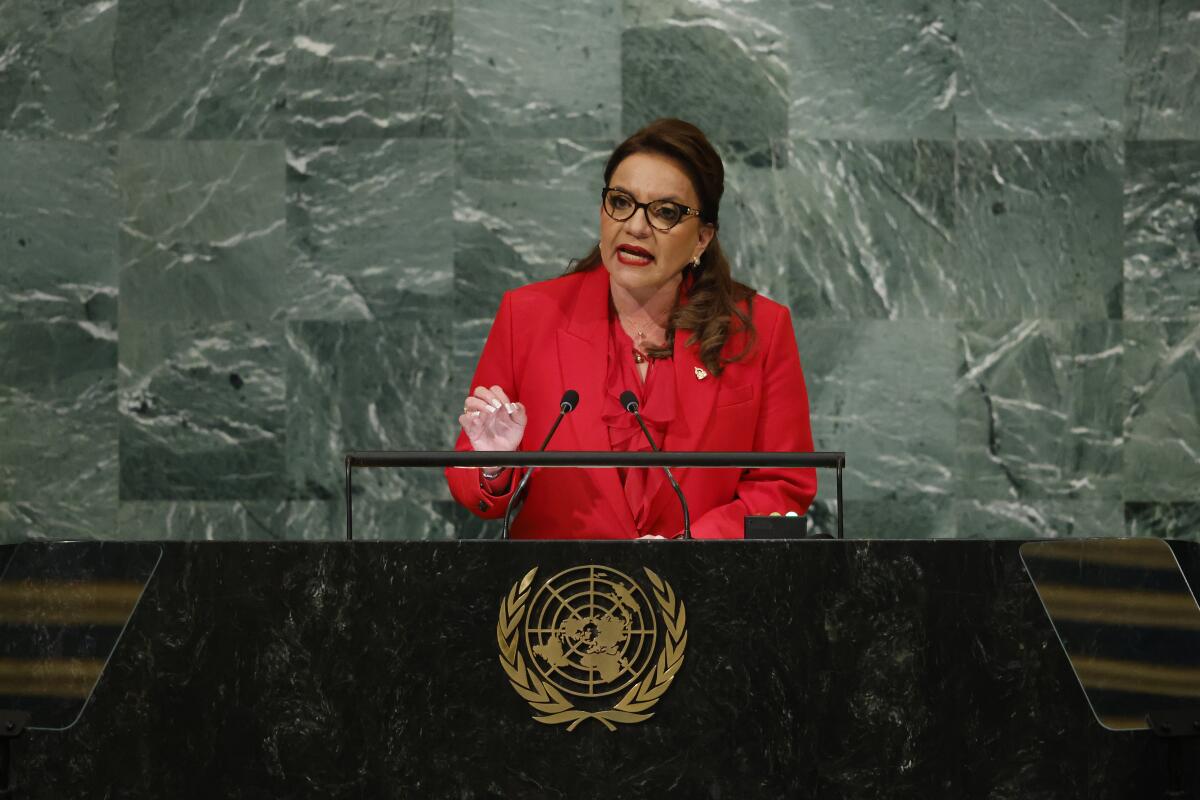Honduras president declares state of emergency over gang crime

- Share via
TEGUCIGALPA, Honduras — Honduras this week became the second Central American country to declare a state of emergency over gang crimes like extortion.
For years, street gangs have charged protection money from bus and taxi drivers and store owners in Honduras, as they have in neighboring El Salvador.
Honduran President Xiomara Castro on Thursday proposed a measure to limit constitutional rights in order to round up gang members.
“This social democratic government is declaring war on extortion, just as it has, since the first day, declared wars on corruption, impunity and drug trafficking,” Castro said. “We are going to eradicate extortion in every corner of our country.”
The measure must be approved by Congress.
On Friday, Jorge Lanza, the leader of the country’s bus operators, supported the move, saying drivers are tired of being threatened and killed for not paying protection money. Lanza said drivers had been asking for a crackdown for years.
“We can’t put up any longer with workers being killed and paying extortion,” Lanza said. “We hope these measures work and remain in place.”
Lanza said 50 drivers have been killed so far in 2022, and a total of 2,500 have been killed over the last 15 years. He estimated that the companies and drivers have paid gangs an average of $10 million per month in order to operate.
Honduras hasn’t specified what the state of emergency would entail, but such measures typically suspend rules regulating arrests and searches; limits on freedom of speech and assembly can be implemented as well.
In El Salvador, President Nayib Bukele on March 26 requested that Congress grant him extraordinary powers after gangs were blamed for 62 killings; that emergency decree has been renewed every month since. The decree suspends some constitutional rights and gives police more power to arrest and detain suspects.
The measure has proved popular among the public in El Salvador and has resulted in the arrest of more than 56,000 people for alleged gang ties.
But nongovernmental organizations have tallied several thousand human rights violations and at least 80 in-custody deaths of people arrested during the state of exception. Activists say young men are frequently arrested based on their age, appearance or whether they live in a gang-dominated slum.
More to Read
Sign up for Essential California
The most important California stories and recommendations in your inbox every morning.
You may occasionally receive promotional content from the Los Angeles Times.













